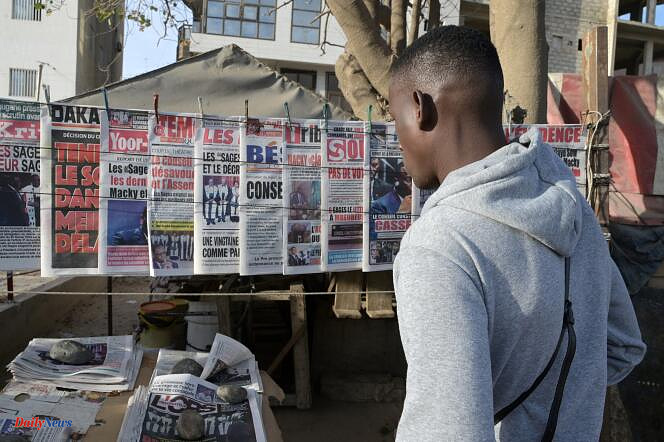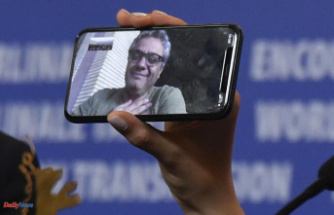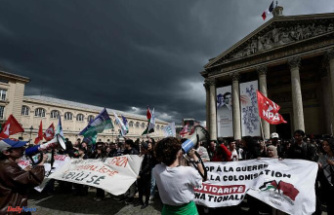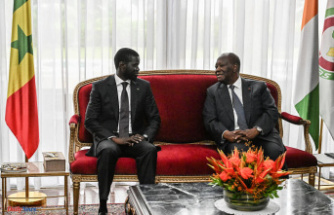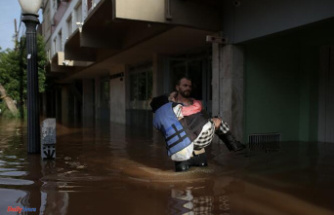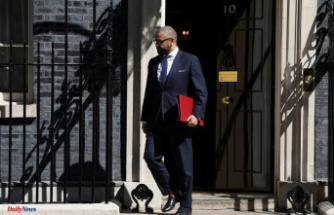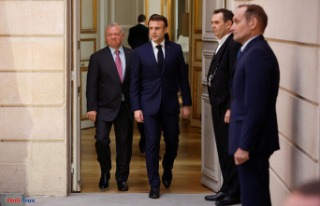In Senegal, the night was short for executives of the Alliance for the Republic (APR), the party of President Macky Sall. After supporting the law ratifying the postponement of the election scheduled for February 25, the ruling party has just been sharply attacked by the Constitutional Council. The body decreed “contrary to the Constitution” the maintenance of the head of state beyond the end of his mandate. A decision taken late in the evening and which surprised the presidential camp.
Because despite the numerous appeals filed by the opposition, the leaders of the APR have since the vote displayed a certain assurance regarding the legal viability of their postponement project. “If we rely on its previous decisions, there is little chance that the Constitutional Council will declare itself competent to rule on a law of this kind,” assured Le Monde on February 9, Abdou Mbow, leader of the movement Presidential Benno Bokk Yakaar in the Assembly. Before specifying, more cautiously: “If the Council took a contrary decision, of course we would follow it. »
As the days went by, the option of invalidating the law by the judges gradually emerged. On Wednesday February 14, during the APR executive secretariat chaired by Macky Sall, this unfavorable scenario was directly mentioned. “We worked on both scenarios. Then we told the president that whatever the Council's decision, he will have to continue to lead a dialogue to achieve a peaceful election,” confided an APR executive.
“It’s not a disavowal.”
However, the majority refuses to see it as a snub for President Sall. However, it was he who decided, on February 3, forty-eight hours before the official start of the electoral campaign, to suddenly suspend the process on the pretext of allegations of corruption within the Constitutional Council. A case in which two judges and the prime minister and government candidate, Amadou Ba, are cited.
“This is not a disavowal for the president, wants to believe Doudou Ka, minister of the economy and old traveling companion of the head of state. It was the law which fixed the vote for December 15 which was annulled. The postponement, necessary in view of the numerous dysfunctions observed in the electoral process, now has a legal basis. Which is not a defeat. »
In its decision, the Constitutional Council “invites the competent authorities to hold the election as soon as possible”. The wise men are opposed to the president remaining at the head of the country beyond the end of his mandate on April 2. Will the latter comply with this instruction? In an interview with the Associated Press on February 10, Macky Sall maintained ambiguity about what he would do in the event of the postponement being invalidated: “When the decision is made, I will be able to say what I will do. »
But for his entourage, the head of state will submit to the law. “The president considered himself within his rights in repealing the decree convening the electoral body, but the judges ruled as the law. Their decision is binding on everyone, no appeal is possible, even for him, says one of his relatives. This act demonstrates that our institutional system is stronger than men and that we are not a sub-democracy. Our administration will honor itself by quickly organizing an election. »
The majority affirms that the head of state wanted the election date to be brought closer. “The date of December 15 provided for by law was not a taboo for the president. He was willing to move forward. For him, this point was one of the crucial questions to be addressed during the national dialogue. Today the priority is for the Ministry of the Interior and the opposition to work together quickly to find a consensual election date,” explains Doudou Ka.
The minister sets July 2 as the deadline for organizing the vote. “As the president's term ends on April 2, if an election is not organized in the meantime, the Constitution requires the President of the Assembly to act in the interim for three months. Within this deadline, he will have to organize the election,” he continues.
Threats of resignations
Could this strong opinion from the judges disrupt the current mediations? While several political detainees have regained their freedom in recent hours as part of intense mediation, the question arises of the continuation of negotiations. The release of Ousmane Sonko, the leader of the ex-Pastef (African Patriots of Senegal for Work, Ethics and Fraternity), and his candidate, Bassirou Diomaye Faye, was until then at the heart of the negotiations. The objective being, according to the architect and negotiator Pierre Goudiaby Atepa, to allow them “to participate in the vote if it were held within two or three months”.
A crucial step in the crisis that the country has been going through since February 3, this rapprochement between the president and his fiercest opponent has sparked strong reactions within the presidential party. Outraged by this unexpected loosening, several ministers are said to have threatened to resign.
The majority seems taken by surprise by the decision of the Constitutional Council. Because within a formation that is not very supportive of its candidate, Amadou Ba, a fringe of executives saw in the postponement until December 15 the possibility of finding a new competitor. But the shortening of the deadline reshuffles the cards. “It is too late to organize a new congress to nominate a candidate. Obviously, Amadou Ba remains our candidate. The only thing left for us is to unite around him. We will settle our scores after our victory,” warns a government official.

